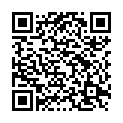|
|
|
| Module code: BBWL-516 |
|
|
4EX (4 hours per week) |
|
5 |
| Semester: 5 |
| Mandatory course: no |
Language of instruction:
English |
Assessment:
Term paper with presentation (Can be repeated annually)
[updated 02.01.2019]
|
BBWL-516 (P400-0008, P420-0396) Business Administration, Bachelor, ASPO 01.10.2016
, semester 5, optional course, general subject
BBWL-2020-516 (P420-0110) Business Administration, Bachelor, ASPO 01.10.2020
, semester 5, optional course, general subject
|
60 class hours (= 45 clock hours) over a 15-week period.
The total student study time is 150 hours (equivalent to 5 ECTS credits).
There are therefore 105 hours available for class preparation and follow-up work and exam preparation.
|
Recommended prerequisites (modules):
None.
|
Recommended as prerequisite for:
|
Module coordinator:
Prof. Dr. Stefanie Jensen |
Lecturer:
Dozierende des Studiengangs
[updated 26.04.2018]
|
Learning outcomes:
After successfully completing this module, students will be well-prepared for a study excursion abroad. They will learn:
to adapt to the cultural customs, economic situation, political framework and historical background of their host country.
_ Students will be able to evaluate English literature on economics and other topics.
They will also be able to search foreign databases independently.
_ The intercultural aspects of this module will help students develop an understanding for their host country.
The project topics will enable students to present complex issues from heterogeneous subject areas in English (if necessary without the aids typically available in lecture halls).
After completing this module, students will have developed social and language skills through joint meetings with students and representatives from their host country.
In addition:
they will also have demonstrated a high degree of commitment, motivation, independence and creativity.
Students will be able to prepare for business visits and work meetings abroad in a structured manner.
The main elements of this module are:
[updated 02.01.2019]
|
Module content:
Participation in lectures, workshops and discussions at the partner university.
Visits to companies and institutions in the vicinity of the partner university or the region visited.
In connection with these activities, topics from the fields of economics, culture, history and politics and topics from the specific regions being visited will be presented, for example:
Relations between the EU and the host country
The host country´s political system
Economic relations between the host country´s regions/states and the Saarland, resp. Germany
Key industries and the economic situation in the regions visited
The development and importance of tourism in the host country or regions thereof
Sustainability aspects in the host economy
Comparative representation of educational / higher education systems
The social situation in the host country and current problems
How minorities are dealt with (e.g. indigenous people)
Cultural and economic aspects of the host country with regard to migration
A comparison of the legal systems in Germany and the host country
Creation of a term paper and presentation in English on a specific topic
_Intercultural communication skills and their use when working in a team
[updated 02.01.2019]
|
Teaching methods/Media:
Lectures/talks, interactive workshops, group work, exchange with students from the partner university, visits to companies and institutes, term paper with presentation
[updated 02.01.2019]
|
Recommended or required reading:
To be announced.
[updated 02.01.2019]
|

